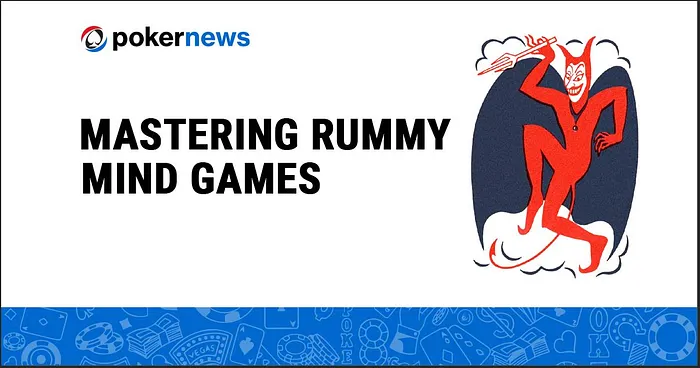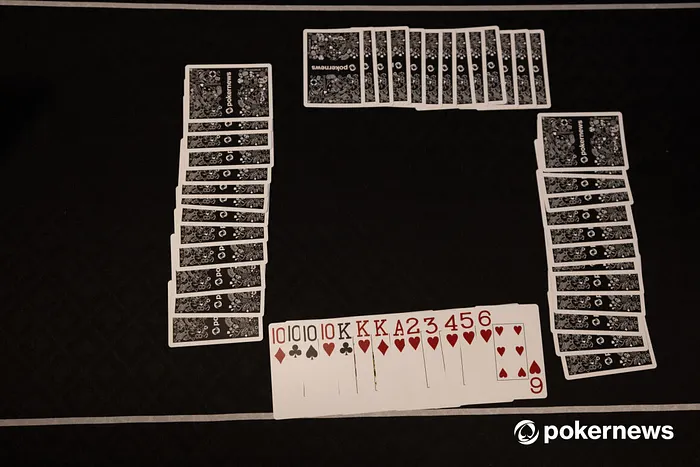Mastering Rummy Mind Games - Techniques to Tricking Your Opponent

Mastering the art of strategic deception in Rummy adds a captivating layer to the game, introducing mind games that can significantly impact opponents and overall gameplay.
This section delves into the nuances of tricking your opponent, exploring the subtle techniques that can alter the course of a match. Understanding the importance of these mind games provides players with a strategic advantage, making the mastery of such techniques a valuable asset if you are looking to become a good player.
Basic Techniques for Tricking Your Opponent in Rummy
Mastering the basic techniques for tricking opponents in Rummy involves the strategic use of misdirection and controlled card plays. One fundamental technique is creating misdirection by subtly steering opponents away from your true intentions. This can be achieved through strategic discards and draws, leading rivals to make assumptions about your hand that are intentionally misleading. Controlled card plays, another essential tactic, involve purposefully revealing or concealing certain cards to manipulate opponents' perceptions.
Creating false expectations is a key aspect of these techniques. By selectively melding specific sets or runs, players can lead opponents to anticipate a particular strategy, only to pivot and surprise them later in the game. Additionally, controlled discards can convey a false sense of urgency or confidence, further confusing opponents about the actual state of your hand.
Strategies for disguising intentions are crucial in executing effective mind games. This may involve intentionally melding less valuable cards to mislead opponents about the strength of your hand or strategically holding onto key cards to create uncertainty. The goal is to keep opponents guessing, making it difficult for them to formulate an accurate read on your strategy.
To wrap up, these basic techniques for tricking opponents in Rummy revolve around the art of controlled deception. By skillfully manipulating the flow of the game through misdirection and strategic card plays, players can gain a psychological edge, disrupting opponents' plans and increasing their chances of success.

Tips for Mastering Mind Games in Rummy
Mastering mind games in Rummy requires a nuanced understanding of psychological gameplay, especially during different phases of the game. In the early stages, subtly misdirecting opponents by adopting a conservative or aggressive play style sets the foundation for later mind games. During the mid-game, recognizing opponents' reactions becomes crucial for adaptive trickery. Observing their responses to specific moves provides valuable insights into their hand and strategy, enabling players to tailor their mind games for maximum impact.
A key tip for mastering mind games is to balance psychological gameplay with overall strategic play. While misdirection can be powerful, it should complement and enhance the broader strategic objectives instead of distracting from them. Effective players are capable of using mind games seamlessly into their overall strategy, using them as tools to disrupt opponents without sacrificing the coherence of their game plan.
Understanding the psychological dynamics of Rummy allows players to exploit opponents' vulnerabilities. Recognizing when to employ mind games and when to rely on solid strategy is a skill that distinguishes seasoned players. Whether it's inducing opponents to make mistakes through calculated misdirection or strategically withholding information, mastering mind games in Rummy adds a layer of complexity to the game, elevating it beyond mere card play to a psychological duel where anticipation and adaptability are paramount.
Advanced Techniques for Tricking Your Opponent in Rummy
For experienced players seeking to elevate their Rummy gameplay, advanced techniques in strategic deception become instrumental in outmaneuvering opponents. A key aspect of these advanced techniques involves adapting mind game strategies based on the evolving dynamics of the game. As the match progresses, astute players assess opponents' reactions, melds, and discards, allowing them to tailor their deceptive tactics to exploit emerging opportunities.
Maximizing points through effective and unpredictable plays is a hallmark of advanced mind games in Rummy. Skilled players strategically choose when to reveal powerful melds, opting for surprise and unpredictability to catch opponents off guard. This strategic unpredictability not only disorients rivals but also serves to maximize the point differentials in favor of the player executing these advanced mind game techniques.
Advanced players also leverage controlled volatility, selectively introducing chaos into the game to disrupt opponents' calculations. This might involve purposefully delaying melding high-value cards until a critical moment or orchestrating strategic discards to create confusion. The goal is to maintain a degree of unpredictability without sacrificing overall control of the game.
In essence, these advanced techniques for tricking opponents in Rummy require a keen understanding of the game's mechanics and opponents' psychology. The ability to seamlessly integrate these strategies into one's game showcases a mastery of Rummy as a card game and a strategic duel where deception becomes a powerful tool for success.
Want to keep learning about Rummy?
- Mastering Rummy Strategy
- Mastering Rummy Discard Strategy
- How to Keep Score in Rummy
- Rummy Tournaments
- Rummy Sequences and Sets
FAQs - Tricking Your Opponent in Rummy
Is it ethical to intentionally trick your opponent in Rummy, or should gameplay be more straightforward?
The ethics of intentional trickery in Rummy can be subjective. While the game inherently involves strategy and deception, players should be mindful of maintaining a fair and enjoyable playing environment. Intentional trickery is part of the game's charm, but it's crucial to strike a balance and ensure that gameplay remains respectful and enjoyable for all participants.
How can I recover if my opponent successfully tricks me in Rummy, and I fall for a strategic play?
Falling for a strategic play is a common aspect of Rummy, and recovery is possible. Stay focused, adapt your strategy, and use the experience to enhance your awareness of opponents' tactics. Be cautious about making impulsive moves in response; instead, analyze the evolving game dynamics and adjust your play accordingly. Learning from these situations can fortify your overall gameplay in future rounds.
Are there specific techniques that work best against certain types of opponents in Rummy?
Yes, tailoring your techniques based on opponents' playing styles is crucial. Against conservative players, introducing controlled volatility can be effective, while with aggressive opponents, a more defensive approach may disrupt their rhythm. Adaptive strategies that consider opponents' tendencies can give you a strategic edge.
Can mind games be more effective in specific Rummy variations, and how do rules impact deceptive plays?
The effectiveness of mind games can vary across Rummy variations. Understanding how these impact deceptive plays is crucial in games with unique rules or scoring systems. Some variations may amplify the impact of certain strategies, while others may limit their effectiveness. Adapting your approach based on the specific rules enhances the success of your mind games.
What is the line between strategy and trickery in Rummy, and how can players find the right balance?
Striking the right balance between strategy and trickery is essential in Rummy. While intentional deception is part of the game, players should avoid actions that disrupt the fair and enjoyable nature of the game. The line lies in using mind games as a strategic tool rather than employing tactics that compromise the integrity of the gameplay. Finding this balance ensures a competitive yet respectful gaming experience.
